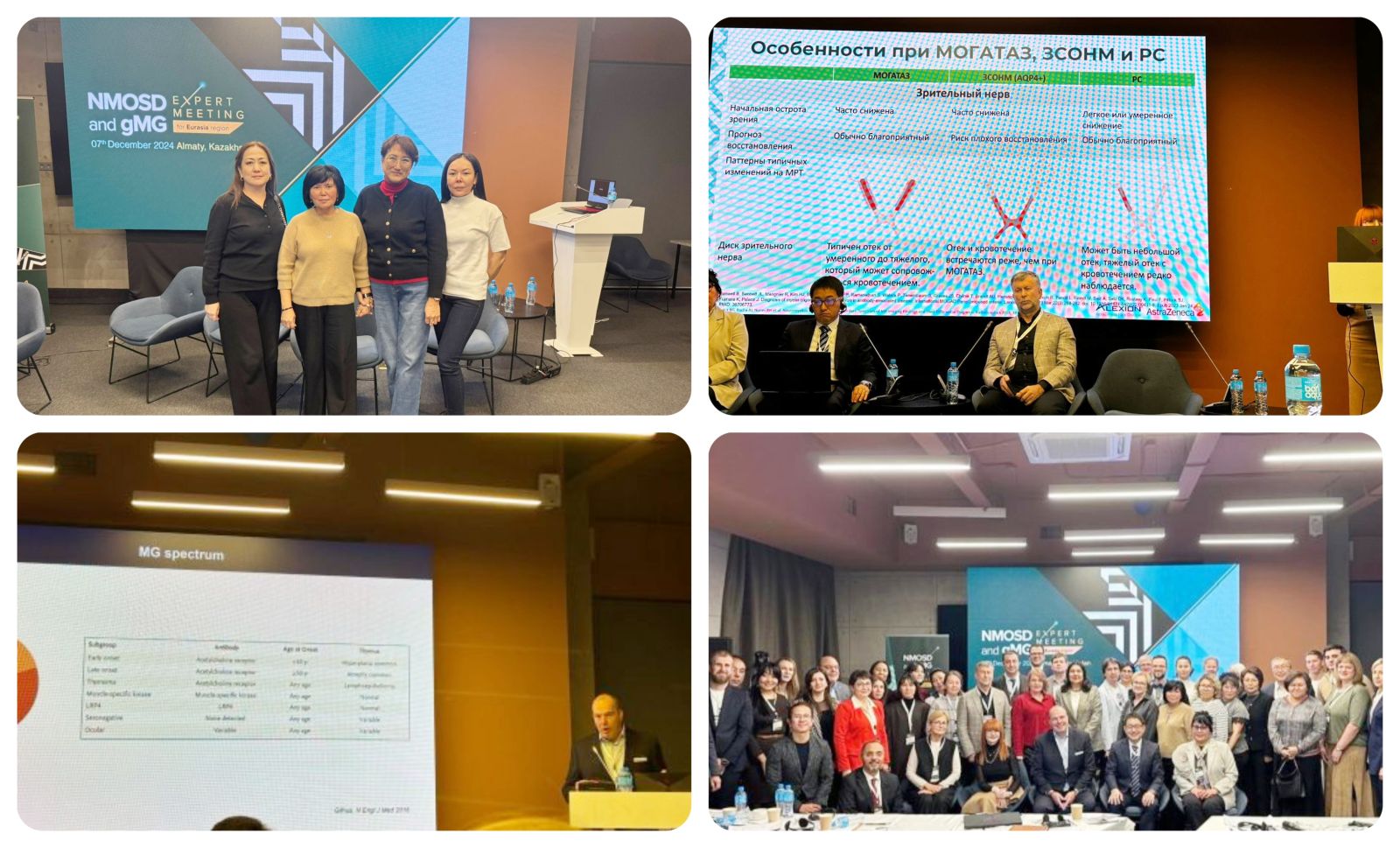An international meeting of experts from the Eurasian region was held in the city of Almaty with the participation of specialists from SKMA

On December 7, 2024, an international meeting of the Eurasian region Expert Council was held in the city of Almaty, where key issues of managing orphan and debilitating diseases, such as diseases of the optic neuromyelitis spectrum and myasthenia gravis, were discussed.
The main goal of the council was to identify problematic aspects related to the epidemiology, diagnosis, and therapeutic options for diseases of the optic neuromyelitis spectrum (ONMS) and myasthenia gravis (MG) in Kazakhstan, as well as to determine the role of the complement system in the pathogenesis of these diseases. These diseases, accompanied by autoimmune damage to the central nervous system, quickly lead to severe disability.
The meeting was attended by leading global experts: Dr. Jin Nakahara (Japan), Dr. Jan Lünemann (Germany), Dr. Ahmed Shatila (UAE), Dr. Banu Kilic Taskopru (Spain), Dr. Hany Taha (UAE), Dr. Alexey Boyko (Russia), Dr. Gennady Bisaga (Russia), Dr. Stella Sivertseva (Russia), Dr. Taras Simaniv (Russia), Dr. Olga Boyko (Russia), Dr. Tatyana Alekseeva (Russia), Dr. Dmitry Kasatkin (Russia), Dr. JT Tibung (Switzerland).
Active participation in the meeting came from representatives of the Department of neurology, psychiatry, rehabilitation, and neurosurgery, including the head of the Department, candidate of medical sciences, professor Nazira Asanovna Zharkinbekova, professor Gulfariza Usenbaevna Tuksanbaeva, and associate professor Gulnara Abdimazhitovna Mustapaeva.
Dr. Jin Nakahara detailed the mechanisms of complement system activation that initiate the pathogenic cascade of autoimmune processes and the formation of a membrane attack complex that causes significant damage to neurons. He also shared his experience in using complement system inhibitors and discussed the management of patients with optic neuromyelitis spectrum diseases (ONMS) in Japan.
Dr. Jan Lünemann introduced the meeting participants to new approaches to the pathogenetic mechanisms of damage to the postsynaptic membranes of neuromuscular junctions in myasthenia gravis (MG) and shared valuable experience in managing patients in Germany.
Colleagues from Russia presented data on the epidemiology of ONMS and MG in various regions of the country. However, as Professor Alexey Nikolayevich Boyko noted, these data cannot be considered a fully accurate reflection of the current situation, and he called for more serious epidemiological studies to be conducted both in Russia and in Kazakhstan.
Dr. Ahmed Shatila from the UAE presented interesting clinical cases, including complex patients with ONMS and MG. He demonstrated a video presentation of the first patient in the world treated with a new generation of complement system inhibitors, showing impressive results and significant improvement in quality of life.
The international expert meeting of the Eurasian region was of great educational value for specialists, as it involved practicing neurologists and medical university professors from various regions of Kazakhstan.
The meeting was organized with the informational support of the AstraZeneca UK Limited representative office in the Republic of Kazakhstan.
 455 views
455 views
